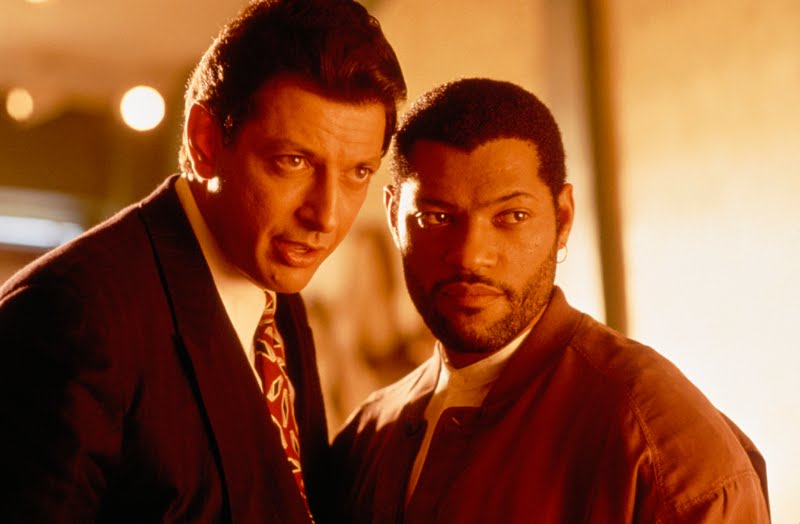A post well worth the read by Robert P. Seawright over at his Above the Market blog.
- Focus on the Data. As I have said repeatedly (and I’m not alone in this), focus on the data. As my masthead proclaims, I strive for a data-driven perspective and a data-driven process. That isn’t easy to do, sadly. We relate better to stories and are all to willing to believe and concoct narratives of various sorts to support our latest nonsense, but it’s a worthy aspiration and commitment nonetheless.
- Actively Seek Out Contrary Data and Conclusions. A remarkable universe of discoveries in psychology and neuroscience demonstrate that our preexisting beliefs skew our thoughts and even color what we consider our most dispassionate and reasoned conclusions. This tendency toward so-called “motivated reasoning” helps explain why we find groups so polarized over matters about which the evidence seems so clear. In other words, expecting people (including ourselves) to be convinced by the facts is contrary to, well, the facts. Factor in behavioral biases (such as the ever popular confirmation bias, optimism bias, in-group bias and self-serving bias) and it’s easy to see (at least conceptually) why we can get it so wrong so readily. Our tendency is to look for and consider only those views that correspond to our own – which goes a long way towards explaining the popularity of Fox News and MSNBC, for example, while also explaining why the viewers of each of those networks tend to think that only the other side has it all wrong. If we are going to be able to see things a bit differently, we need to seek out and consider sources that look at things differently.
- Build-In Accountability Mechanisms. We need (relative) objectivity if we are going to succeed in investing and in life unless we are extremely lucky. Having an accountability partner or (better yet) a competent and empowered team is particularly important due to our great ability to spot what’s wrong with everybody else (if not ourselves). It also means taking and dealing with criticism seriously. Even welcoming and encouraging it. It shouldn’t be surprising to see so many people who experience great investment success suffer indifferent performance or even failure subsequently (Bill Miller and John Paulson, for example). The more success and power we achieve, the easier it is to believe the hype. Accountability mechanisms that are maintained and honored can help to undercut that.
- Focus on Process. Accountability is more effective when it’s part of a consistent, careful, clear and clearly defined process. We all recognize that the outcomes in many activities in life combine elements of both skill and luck. Investing is one of these. Especially troublesome is our perfectly human tendency to attribute poor results to bad luck and good results to skill. It’s a lead-pipe-lock that we’re going to err and err often in the investment world. If we are to succeed with any measure of consistency, we need carefully crafted plans with screw-up contingencies built-in together with a commitment to regular re-evaluation and a rescue plan in the event of major catastrophe.
- Test and Re–Test. No matter how good our process is, we need also to assume that we have made errors and set out actively to find them by testing and confirming everything possible. Once we have decided that a given view is correct or committed to a particular course, confirmation bias has a tendency to take over. Planning to be lucky and believing that psychological realities don’t apply to us is a lovely (if arrogant) thought. But it’s not remotely realistic. Keep testing and looking for ways that you’re wrong.
- Avoid the Noise. Distinguishing signal from noise can be agonizingly difficult. Given the sheer amount of stuff competing for our attention, eliminating distractions unlikely to provide substantive benefit will improve the likelihood of our success. CNBC is fun and all, but how often does it make us smarter or better?
- Take a Tip from Attorneys. I often refer to myself as a recovering attorney, and there is a great deal about the practice of law that is frustrating and silly. But one excellent technique I learned from my time in that profession is to argue the other side’s case. Understanding and even appreciating a contrary point of view is helpful to our own thinking and can provide a good check on the coherence of our own viewpoints. Understanding and seeking support for the opposition’s best arguments is a powerful learning tool. We might even decide that –gasp – mistakes were made (almost surely by someone else, of course).
- Keep Track of Your Mistakes as Carefully as Your Successes. We all tend to trumpet our successes and downplay our failures. I highly suggest that, at least within your circle of influence and with those to whom you are accountable, you carefully track and analyze your failures, readily apparent or not. Sometimes these mistakes will be the result of bad luck. But often you will find correctable errors or even errors in your process. Doing so also helps with #10.
- Take Your Time. The more experienced and successful we are, the easier it is to take short-cuts. Experience is what allows us to apply useful short-cuts, of course, but it’s important to remember that all behavioral biases and ideologies provide mental short-cuts of a sort too. For big decisions, at least, make sure to take the time toconnect each and every dot. When I was in law school I often refereed basketball games for extra money. Many situations were repeated time and again with the next action and the right call seemingly foreordained. It was always difficult to avoid anticipating the call — blowing the whistle based upon what was highly likely (perhaps almost surely) to happen rather than waiting to see what actually happened. Surprises happen on the basketball court with remarkable frequency. They happen in investing too.
- Try to Stay Humble (no matter how successful you are). Even though it takes a healthy amount of self-confidence to be an investment success, arrogance and certainty are frequent enemies of continuedinvestment success. Your accountability partners can and should help here, of course. Spouses are especially expert at promoting humility. You will screw up and screw up often. Remind yourself of that reality often as you continue to look for where your most recent failings took place.
READ THE FULL BLOG POST HERE
If you enjoy the content at iBankCoin, please follow us on Twitter







That is fantastic! Applies to everything.
Good advice if you can deal with correcting your behavior!
I see these biases a lot, once you know what to look for, and not just in investing. I had worked closely with a friend for 5 years; he was fairly liberal and every position he took was predictable. During a discussion, he once turned to me and said “Do you know I have no idea where you stand on anything? I don’t even know if you’re a Democrat or a Republican.” My reply was “Good. let’s keep it that way.”
nice find chess